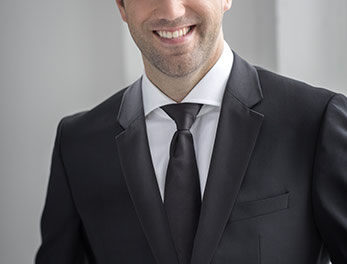The evening of February 20, I made my way over to UNCG’s Aycock Auditorium to hear the UNCG Symphony Orchestra perform. Though the auditorium seats 1,600, there were less than 100 audience members. It made for a very intimate performance. The group, conducted by Dr. Kevin M. Geraldi is made up of entirely students, ranging from undergraduate to doctoral levels.
The evening began with Carl Nielsen’s (1865-1931) “Festival March” from Aladdin. This energetic piece was an excellent show-starter; the audience’s attention was immediately grabbed by the crash of cymbals and a catchy, simple melody. The orchestra blended well and was very tight. The players used the dynamics to great effect; it was easy to stay engaged until the last note sounded. There was a rough patch at the end where the meter seemed to change, but the orchestra pulled together and finished the piece strongly.
The second work, the Concertino for Clarinet in E-Flat by Carl Maria von Weber (1768-1826), introduced soloist Mark Cramer. This piece requires a clarinetist of high skill level, and Cramer played exceptionally. His bright, clear tone carried easily throughout the auditorium. He handled the two-octave leaps beautifully and was able to switch musical character, going from a slow, dramatic section to a lively section, with ease. Cramer was also a joy to watch; it was obvious that he was invested in his performance and he really seemed to enjoy himself. The orchestra played reasonably well. The violin section was not consistently as tight as it could have been, but on the whole the accompaniment was well done.
Première Rhapsodie, composed by Claude Debussy (1862-1918), wrapped up the first half of the concert. The music had a dreamy, Impressionistic feel, as much of Debussy’s music does. Cramer again soloed and played very well. The orchestra seemed to have some intonation issues and was, as a whole, not as tight as in the first two pieces but this, too, was, overall, a lovely performance, and the music was very easy listening.
The second half was dedicated to Scheherazade by Nikolai Rimsky-Korsakov (1844-1908). This program music loosely tells the story of Arabian Nights. The program notes helped the listener imagine the story as the piece unfolded. Violinist Will Estes played the Sultana’s melody, while the Sultan’s motif was given by the rest of the orchestra throughout the piece. Estes had a nice vibrato and a pure tone. The Scheherazade was easily my favorite piece performed on this concert. It was very Russian and very beautiful, with much of the music in the minor mode and full of lush harmonies. The orchestra played magnificently on these pieces, so much so that it was easy to forget this is a student ensemble; I was hooked until the final note. They played at an extraordinary level and were a joy to listen to.
The orchestra’s next concert, a program featuring music by Wagner, will be presented on March 1. For details, click here.











